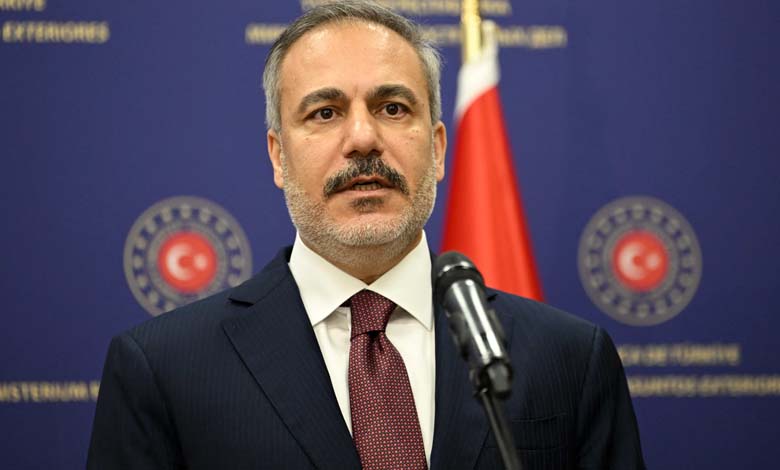Turkey avoids clash with Israel in Syria: condemnation and mediation, but no concrete action

Official Turkish positions range from political condemnation to diplomatic coordination with the United States and quiet mediation with Israel, yet Ankara has taken no concrete measures to deter Israeli military escalation in Syria.
-
The Opening of the Abou al-Zindin Crossing Between Turkey and Syria Depends on Conflicting Interests
-
Turkey Rejects Escalation with Israel in Syria and Calls for Diplomatic Solutions
Despite praise from President Ahmad al‑Char’a for Turkey’s recent role in de‑escalating Israeli advances in southern Syria, Ankara’s stance has come under criticism — particularly over its refusal to provide direct military support to the transitional Syrian government, unlike Israel’s active and substantial backing of its allies, especially Druze factions in As-Suwayda Governorate.
Observers describe Turkey’s rhetoric as “indecisive and murky,” noting that on the one hand, Turkish officials issue condemnation and coordinate diplomatically with Washington, and on the other, engage in quiet mediation efforts with Tel Aviv. Yet no practical actions are taken to halt Israeli strikes in Syria or to strengthen al‑Char’a’s government amid growing security challenges.
-
Stumbling Reconciliation Between Turkey and Syria… Where Will the Situation Head?
-
Turkey seeks to establish a base in Syria to monitor the Kurdish forces and Israeli influence
On Wednesday in New York, Foreign Minister Hakan Fidan asserted that Ankara had “transmitted its concerns to the Israelis via Turkish intelligence,” while carefully avoiding any direct confrontation. He stated, “We do not want instability in Syria,” emphasizing the need to support the new Syrian authority, without clarifying the nature or timing of such support.
In contrast, Israel has been more assertive: military and rights reports indicate that it has provided direct assistance to its Druze allies in As-Suwayda, including weapons and intelligence support, and has conducted repeated airstrikes on Syrian government positions after Syrian forces intervened during sectarian violence in the region.
-
Syria and Turkey.. Relying on a “friend” on the path of normalizing relations
-
Complications of Pending Issues Slow the Normalization of Relations Between Syria and Turkey
In his Thursday morning address, President al‑Char’a praised Turkish mediation but expressed some disappointment with Ankara’s limited role: he affirmed that “Syria will never be a venue for sectarian division or foreign fragmentation,” and recalled that his government had chosen between direct confrontation with Israel or entrusting local Druze leadership with security in order to avoid a wider war.
This contrast between Israel’s explicit military involvement and Turkish restraint has raised sharp questions in Syria: is Ankara withholding support out of fear of a direct clash with Israel? Is its restraint part of a strategic policy or merely a pretext to avoid deeper involvement?
-
Panic and displacement.. How Is Northern Syria Preparing for Turkey’s Threat of Ground Invasion?
-
International human rights groups condemn Turkey and Lebanon’s pressure on Syrian refugees
Within Turkey, neither the government nor the Parliament appears ready to alter this approach. On Wednesday, Parliament passed a formal resolution condemning Israel’s “aggression against Syria,” describing the strikes as “despicable” and in violation of the UN Charter.
Parliament Speaker Numan Kurtulmus declared that the attacks aimed to deflect attention from the “ethnic cleansing policy perpetrated by Israel against the Palestinians,” and urged the international community to end its “unjustified complacency.” However, the resolution contained no indication of any intention to provide military or logistical support to al‑Char’a’s government, which faces a multifaceted crisis: sectarian violence, foreign interference, and the threat of territorial fragmentation.
-
Turkey: Thousands of Syrians try to escape Erdogan’s hell
-
North Syria town: Clash with Turkey-backed fighters and Kurdish forces
The transitional Syrian president appears caught between divergent regional actors: Israel, which explicitly supports certain Syrian factions in pursuit of its security and territorial objectives, and Turkey, which offers official support in words but no tangible commitment to Damascus.
For some analysts, entrusting security in As-Suwayda to Druze authorities was not only a local decision, but also a subtle signal to regional allies — particularly Turkey — that “Syria will not wait forever for a support that never arrives.”
-
Step Toward Sanctions Relief: UN Report Denies Links Between Hayat Tahrir al-Sham and Al-Qaeda
-
UN Report Denies Any Link Between Damascus and Al-Qaeda
While Ankara continues diplomatic efforts, coordinated with Washington and several Arab capitals, to de-escalate tensions, these measures have not halted Israeli strikes nor strengthened Syrian defensive capabilities. Unless regional alignments shift significantly, the absence of military backing leaves al‑Char’a’s government vulnerable to further Israeli aggression.












